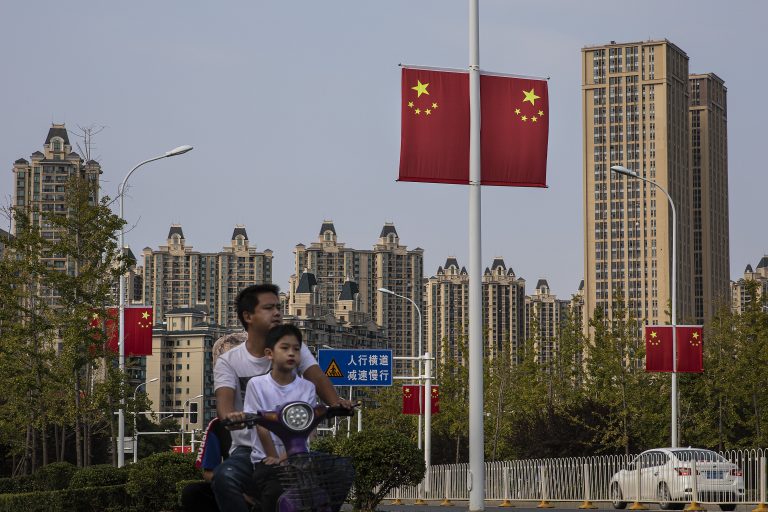In a significant move that reflects growing concerns over China’s financial stability, leading financial and ratings agency Moody’s has downgraded its outlook on the country’s credit ratings from stable to negative.
The decision comes amid expectations that Beijing’s efforts to support local governments and state-owned enterprises could weaken the country’s overall fiscal, economic, and institutional strength.
Despite the downgrade, Moody’s maintained China’s “A1” long-term rating on the country’s sovereign bonds. However, the agency projected a slowdown in China’s annual GDP growth — forecasting a dip to 4 percent in 2024 and 2025 — and an average of 3.8 percent from 2026 to 2030. It also anticipated a further decline to 3.5 percent by 2030, influenced by structural factors including debt-saddled local governments, weak demographics, and faltering state-owned enterprises.
RELATED: Major Money Managers and Investors Wary of China Amidst Losses and Regulatory Scrutiny
The shift in Moody’s outlook underscores the challenges facing the world’s second-largest economy — particularly as Beijing turns to fiscal stimulus measures to support local administrations and manage the escalating debt crisis seen among its property developers and banking sectors.
‘Increased risks’
Success
You are now signed up for our newsletter
Success
Check your email to complete sign up
“The outlook change also reflects the increased risks related to structurally and persistently lower medium-term economic growth and the ongoing downsizing of the property sector,” Moody’s said in a statement on Dec. 5. The agency also highlighted the difficulties in designing and implementing effective policies that balance economic rebalancing in the country’s overall balance sheet.
“These trends underscore the increased risks related to policy effectiveness, including the challenge to design and implement policies that support economic rebalancing while preventing moral hazard and containing the impact on the sovereign’s balance sheet,” the agency said.
Following this announcement, China’s credit default swaps, which measure the cost of insuring against a government default, rose slightly, according to Reuters data.
Reacting to the downgrade, China’s Finance Ministry expressed disappointment, calling Moody’s concerns “unnecessary and inaccurate.” Instead, the ministry pointed to China’s ongoing economic recovery and advancement in high-quality development, despite a complex international landscape and fluctuating global economic recovery following the COVID-19 pandemic.
In recent months, the Chinese government has attempted to bolster fiscal measures by allocating more funds to local governments. On Oct. 24, it formalized a process allowing local governments to borrow more money for the upcoming year. The process would start in the final quarter of the preceding year.
In addition, Beijing announced a rare mid-year fiscal revision — which included issuing 1 trillion yuan (approximately $137 billion) in government debt — primarily set for rebuilding areas affected by natural disasters and catastrophe protection. Over the summer, China experienced historic floods that devastated many cities, killing dozens of people and causing widespread destruction.
MORE ON THIS: Unprecedented Flooding in China Leads to Resentment, Protests
Investors pulling out
According to the China Securities Investment Funds Association (CSIFA), as of this September, 2,344 private equity funds were canceled — prompting Chinese media to claim that “the market downturn is compounded by the extinction of the shell business.”
A shell business refers to a non-listed company acquiring a listed status by purchasing a certain percentage of equity in an already listed company through the securities market and then injecting its own relevant business and assets by way of reverse takeover for the purpose of indirect listing.
The shake-up has not only alarmed foreign investors but has also led to concerns among local business owners and real estate investors. On July 31, The Wall Street Journal noted that “China’s 200-million-strong army of retail investors have withdrawn from the stock market and started to increasingly put their money into money market funds and insurance products.”
Moody’s decision also factors in the 1.6 trillion yuan increase in central government transfers to regional and local governments in 2022. However, investors note that the partial counter to the 2 trillion yuan lost in land sales revenue only acts as a temporary fix and does not address the underlying issues in China’s long-term economic stability and fiscal health.














